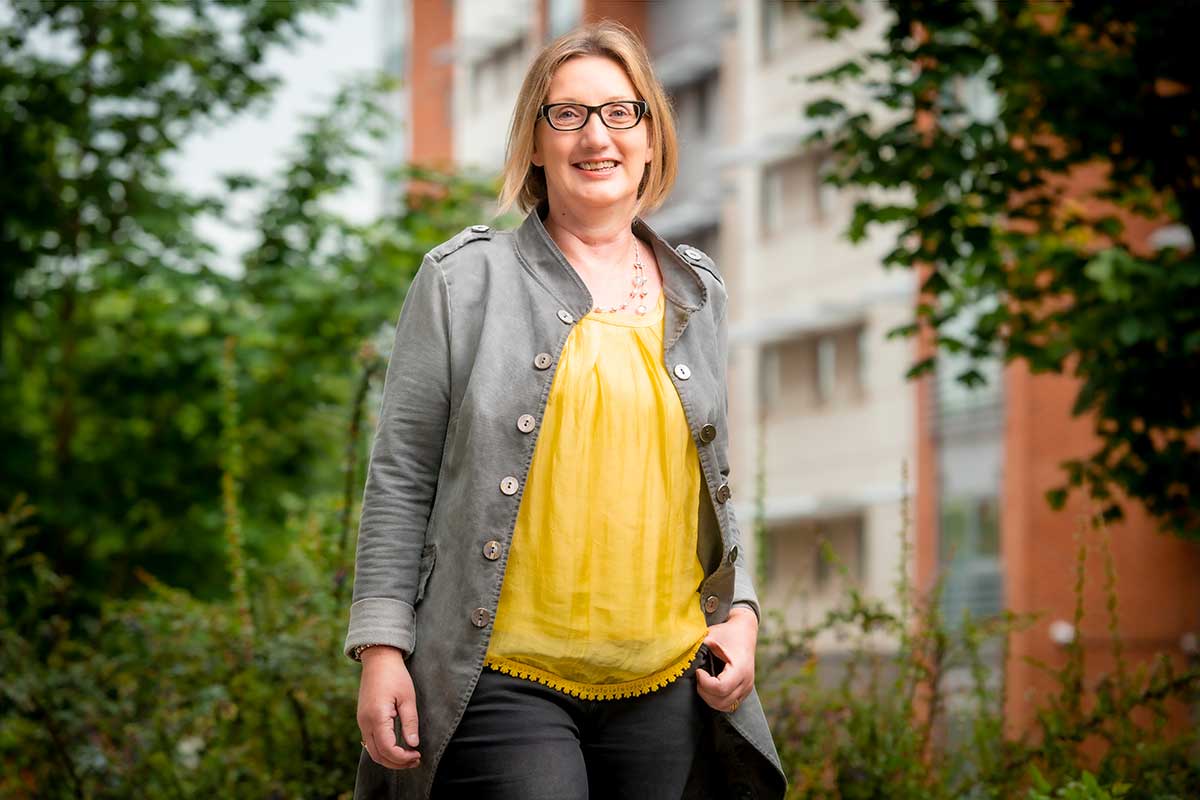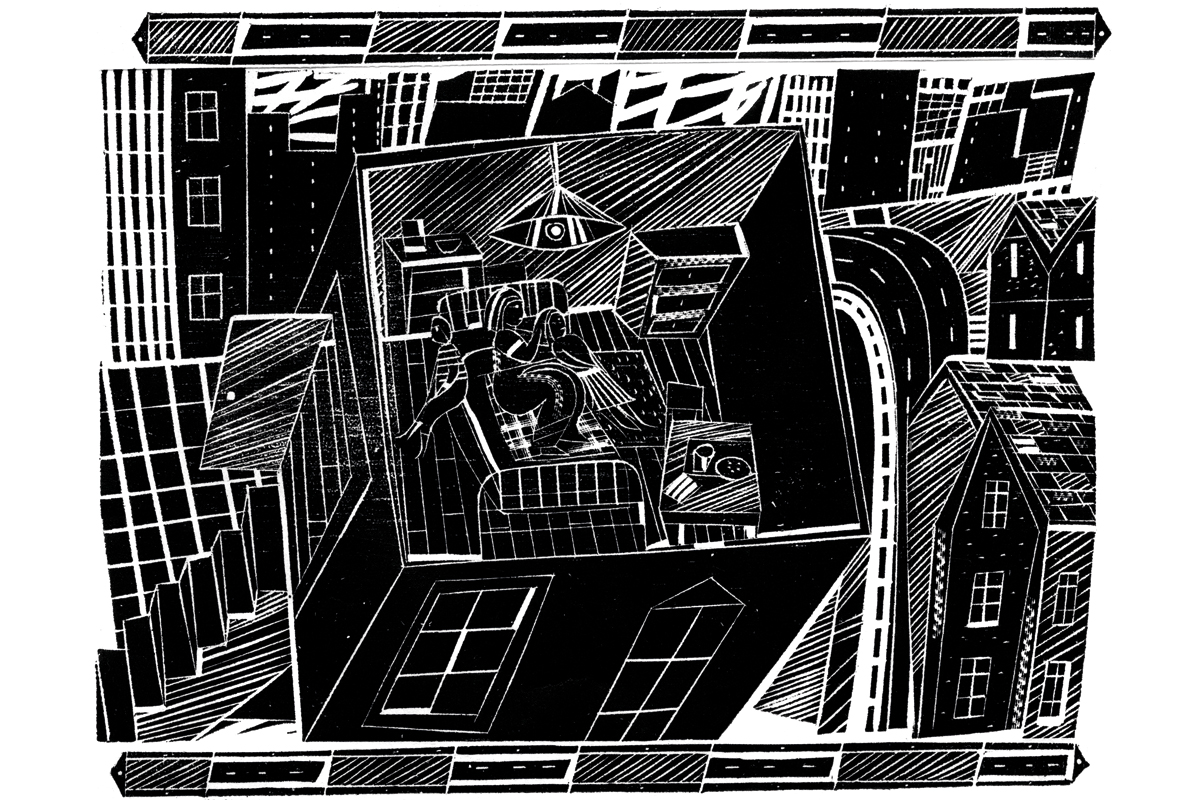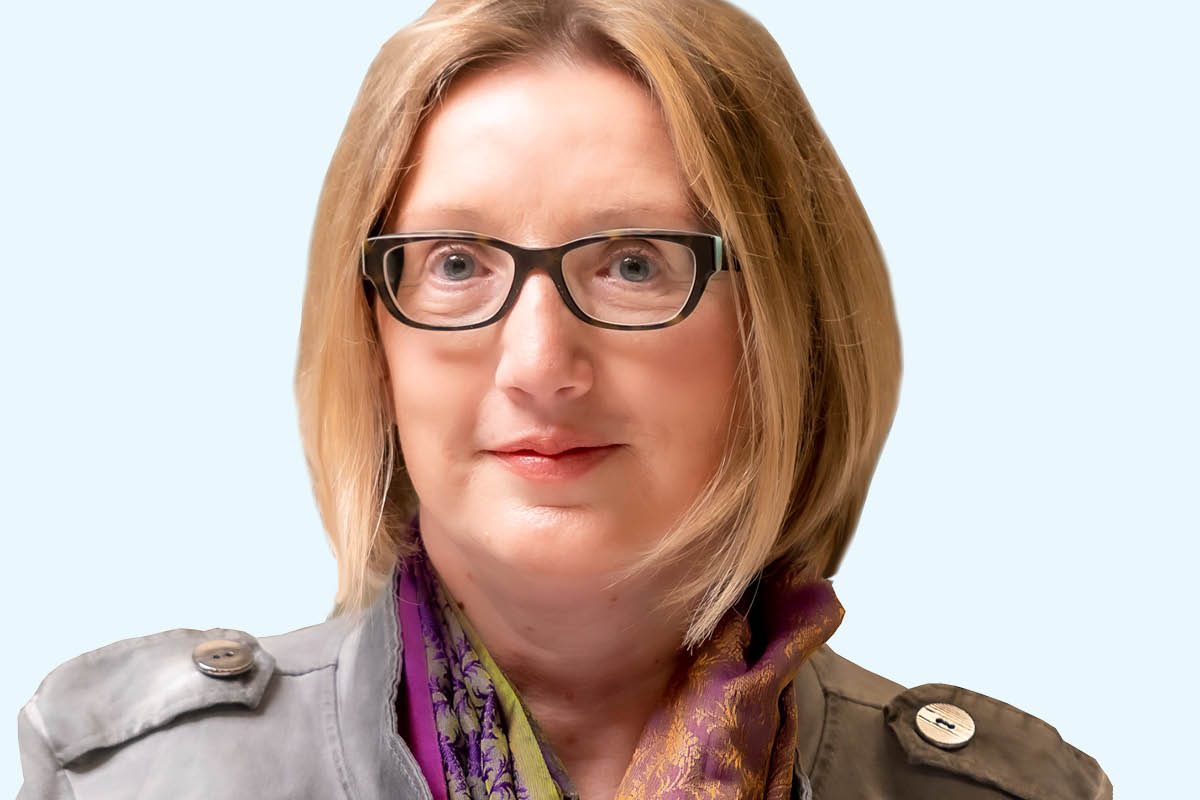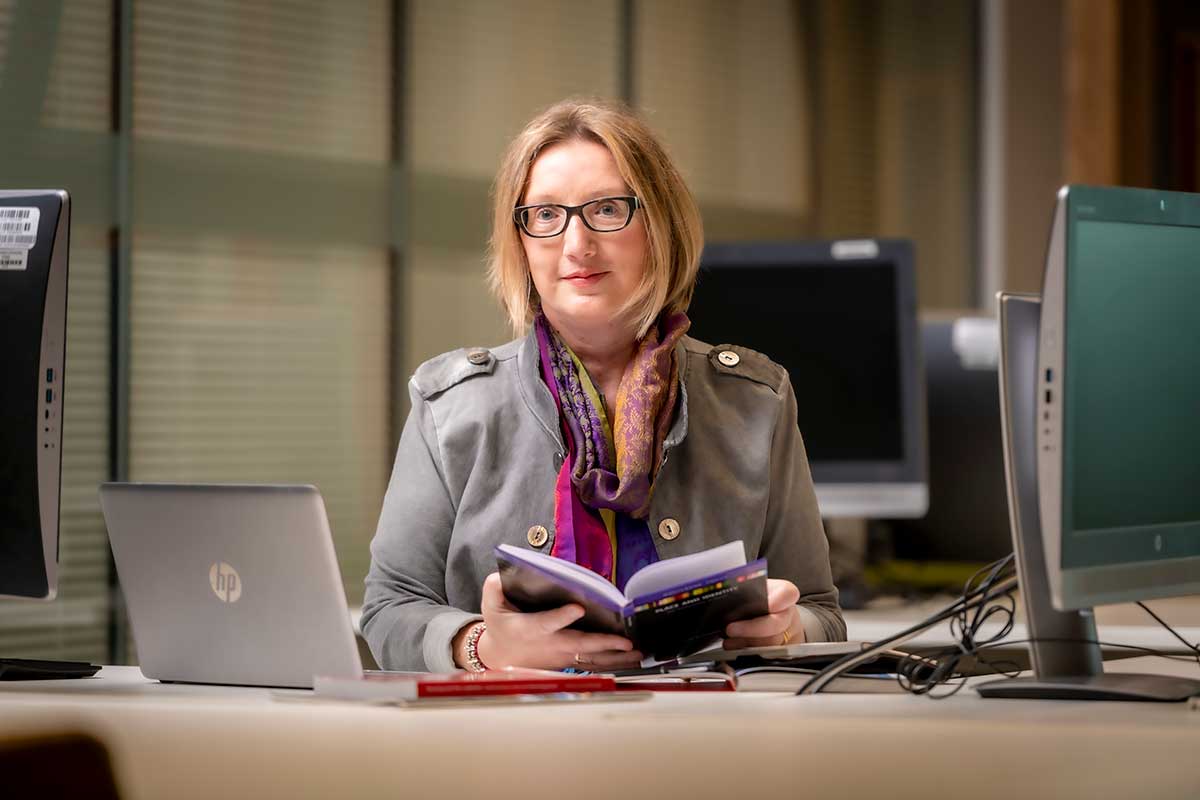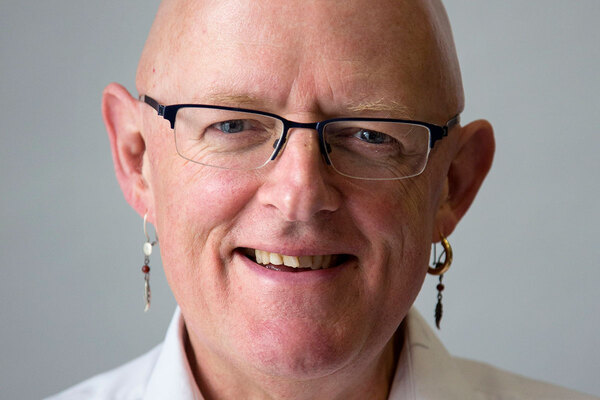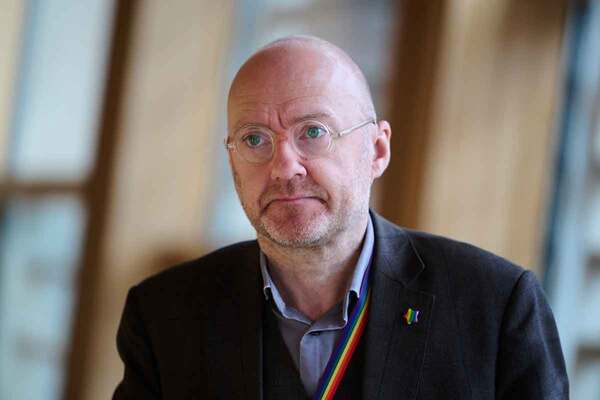The heart of the housing crisis: meet Jo Richardson, new CIH president
Jo Richardson, the new president of the Chartered Institute of Housing, tells Peter Apps her priority is exploring how to resolve and prevent homelessness. Photography by Redpix
As an 18-year-old, Jo Richardson spent a year in America and volunteered for a charity providing relief to homeless people in New York City.
“I had come from a place of great family stability,” she says. “I had moved only once in my childhood, and had taken home for granted in the best possible way because I hadn’t known anything different.”
But what she saw on the streets of New York would leave a lasting impression. “This was New York, just on the cusp, before gentrification,” she says. “The people I spoke to and the images I saw were really burned onto my memory. It made me think this is really something I want to do as a career.”
“Temporary accommodation, bed and breakfast accommodation, unaffordable housing, insecure housing, precarious and unsafe housing is not home”
And so she did: a degree in public administration followed, and then a stint on a local authority housing team and as a housing officer. Now she is one of the country’s leading housing academics, holding the role of professor of housing and social research at Leicester’s De Montfort University.
She is also – as of July – the new president of the Chartered Institute of Housing (CIH). Holders of this position have used the platform to raise, and campaign on, issues to which they want to draw the eye of policymakers and their colleagues in the sector.
Ms Richardson’s predecessor, Aileen Evans, ran a personal and inspiring campaign about mental health, while Alison Inman and Jim Strang helped reshape the sector’s approach to domestic violence in 2018 and 2019 respectively.
“Following on from Aileen’s presidential campaign, these are really big shoes to fill,” says Ms Richardson. “I certainly would want to carry on focusing on that [mental health] as part of my tenure, too. I think the beauty of having the UK housing sector behind these campaigns is that we don’t see them come and go, we see layers of campaigns.”
However, her primary focus will be homelessness and shining a light on the fact that this means more than rough sleeping. The campaign will be called Homeful – a play on words which emphasises a gap in the English language for an antonym to homeless. It will have two strands: research and fundraising.
“If you Google an image of homelessness, you will invariably find somebody in a sleeping bag in a doorway. But we know that homelessness is so much more than that,” she says. “Temporary accommodation, bed and breakfast accommodation, unaffordable housing, insecure housing, precarious and unsafe housing is not home. So it’s exploring how we can resolve homelessness, but also how we can prevent [it].”
Temporary accommodation
She will seek those with lived experience to lead the research project, as well as frontline practitioners to gather evidence of what has worked. “I really want the UK housing sector to come together and think, ‘How can we as providers and residents reimagine solutions and ways to prevent homelessness in future?’” she says.
“These families are in a temporary holding pattern, sometimes for years and years It’s very difficult then to think of it as home, it’s very difficult to feel settled and secure, and able to carry on with the rest of your life”
The UK certainly has a problem with homelessness. For all the success of the government’s Everyone In initiative during the pandemic, the first quarter of 2021 finished with 95,450 households in temporary accommodation in England – a 3.5% rise. This figure almost doubled from a low of 48,010 at the end of 2010.
Since then, the number has risen every quarter, as welfare reforms have combined with a dwindling stock of social housing. Among the 95,450 households, there are 20,000 with children living in either bed and breakfasts, hostels or nightly paid accommodation.
Properly understood, this would be a national disgrace and the heart of the housing crisis. Yet it is a dataset to which less attention is often paid than overall housebuilding or metrics such as homeownership.
“I do think it’s time that we really focus on temporary accommodation,” says Ms Richardson. “These families are in a temporary holding pattern, sometimes for years and years. And that does have an impact on the progress of children’s education, the possibilities of connecting into a wider community. It’s very difficult then to think of it as home, it’s very difficult to feel settled and secure, and able to carry on with the rest of your life.”
Ms Richardson started out at South Holland District Council in the 1990s before moving to become a housing officer at Midsummer Housing Association, with a patch of around 800 mixed-tenure houses. After that she moved to the CIH’s good practice unit, where she travelled the country studying different approaches.
“I know some people are nervous about getting on trains and being in spaces together, but I think so long as events like the conference are safe and secure, and it will be, I’m relishing the idea of meeting people and speaking face to face again. I think a lot of us are”
She says the CIH has provided “structure and framework” to her career, but believes the organisation is about more than that. “It feels more like a movement than an organisation. It feels more like, this is us, this is what we stand for. We stand for quality, affordable housing for all,” she explains.
The work at the CIH set her up for her move into academia, where she has produced research on homelessness and housing service delivery, but also several papers on the experiences of Gypsy and Traveller communities.
“People have written about the last acceptable bastion of racism and it seemed to me that it was still acceptable to talk about people in those communities in such a way. I found it really disturbing,” she says. “We’re still in the same position unfortunately.”
Her campaign on homelessness comes from the same place: a desire to draw out an issue of inequality that does not yet have the prominence it deserves.
Ms Richardson’s research programme will engage with these issues, but she will also be fundraising for End Youth Homelessness, an umbrella organisation of charities which works to prevent young people becoming homeless and support those who do.
As part of this effort, she will be walking an astonishing 630 miles along the South West Coast Path, a route made famous by Raynor Winn in her book The Salt Path. Ms Winn walked it with her husband Moth after losing their home when investments turned sour. Moth was terminally ill at the time. The book is a reflection on coping with illness, grief and loss at the same time as losing your home. Starting at some point in 2022, Ms Richardson plans to walk 22 miles a day for around 35 days, with the campaign branded ‘22 in 22’.
“I’ve never done anything like it, so I’m slightly nervous about saying it out loud to someone who is going to write it in a national paper,” says Ms Richardson. “Anyone can join in. So if you’re in the South West, I’d love to walk with you, I’d love to talk about experiences of home and what home means. It will feed into the action research.”
For those not in the South West, she is inviting the sector to pick a ‘22’ challenge to add to the fundraising effort. So some may meet Ms Richardson on the windswept paths of Dorset and Devon, but there will be an earlier opportunity, too: the Housing 2021 conference, where she will give a keynote speech. This year’s conference is special, representing something of a reunion for members of a sector which has spent the last year seeing each other through the now all-too-familiar lens of Teams and Zoom.
“Our organisations have worked very quickly to enable us to carry on working online. But there’s nothing quite like the informal chat, the serendipity of seeing someone which sparks that fresh conversation, that new innovation,” she says.
“I know some people are nervous about getting on trains and being in spaces together, but I think so long as events like the conference are safe and secure, and it will be, I’m relishing the idea of meeting people and speaking face to face again. I think a lot of us are.”
Jo Richardson will be speaking at Housing 2021. See her CIH presidential address at 2pm on Thursday 9 September. Go to cihhousing.com for tickets and more information.
Sign up for our daily newsletter
Already have an account? Click here to manage your newsletters
